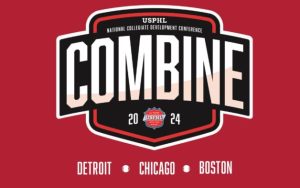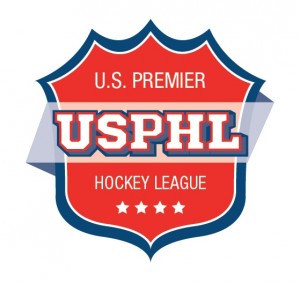THE WHYTE STUFF: Adults should be role models at, away from the rink
I recently had lunch with another hockey director from here in the Valley and had a great time talking about the philosophy of our positions.
We exchanged many stories, mostly funny ones about players, but there were also some more concerning ones that pertained to the parents.
Every year, we as directors, coaches and managers, continue to educate the parents and promote healthy, sportsmanlike behaviors. And every year, we end up having situations that arise where the adults tend to lose sight of acting like adults.
Our conversation led to how we handle certain situations, but more importantly, what we do to encourage everyone involved in this sport to show good judgment in the stands, in the car and at home. He told me that he actually hands out a booklet to every family and asks the parents to read through it and follow the guidelines and suggestions. I really liked that idea because it is something that the parents can refer to anytime during the season, and also be used if and when someone falters.
At DYHA, we strongly encourage our coaches to thoroughly communicate with all of their parents the necessity of “playing nice,” and we also have every parent sign off on our Code of Conduct. This form consists of 19 points that when followed, that person would be a model youth sports parent. Ultimately, it is a matter of showing respect. The respect goes far beyond your child playing hockey, as it must extend to all other players on both teams, all coaches, the officials, and also all other spectators in the facility.
In the heat of the moment, during an intensely competitive game, parents can quickly lose sight of how to properly act. Unfortunately, every week, all over the world, there are parents in their local rink screaming obscenities, yelling at kids, getting into altercations in the stands, and claiming how they could coach better than that so-called loser on the bench.
As I am completely positive that this type of behavior happens at the ball diamonds, gymnasiums, courts, football and soccer fields, I tend to believe that hockey can be worse at times. My reasoning behind this is based mainly on money.
That’s right – the more the sport costs, the more these bad behavioral traits creep in. I cannot begin to count how many times I have heard comments such as, “For as much as I am paying, you’re darn right I have something to say” or, “I am not going to spend this much money for this team to not even try and continue to lose.” There are much more, but I think you get the point.
I am sure that the majority of these comments are reactionary and made from emotion, that the parents truly have the best intentions in mind and want their children to reap all the benefits that youth sports provides. The competitive spirit in all of us come out as we live vicariously through these players.
I must admit, I love coaching so much because I get such great satisfaction when the players I am teaching execute what we have worked on and succeed as a team.
However, when things don’t go well in our favor, I take great responsibility in that as well. Fortunately, I have the ability to make the changes I feel is necessary to keep the team moving in the direction I want. Parents do not have that luxury and must put their trust and faith in the head coach, who truly is looking out for the best interest of the players.
The more that we as youth hockey representatives can enforce the guidelines and policies in place and promote sportsmanlike behavior on and off the ice, the better the sport will grow. This in turn creates such a better environment in the arena, including the dressing rooms, ice surface, stands, and even the parking lots.
Sean Whyte is the director of hockey operations and coach-in-chief with the DYHA.







